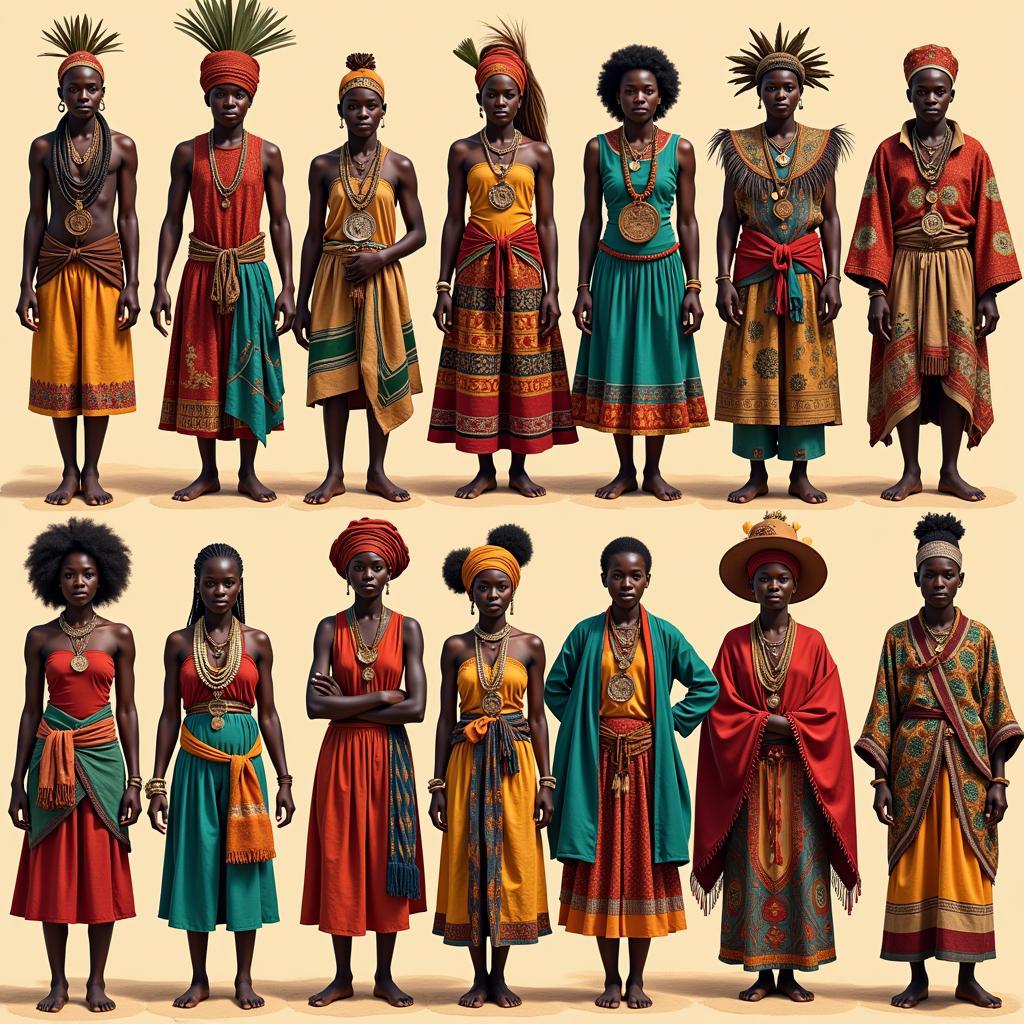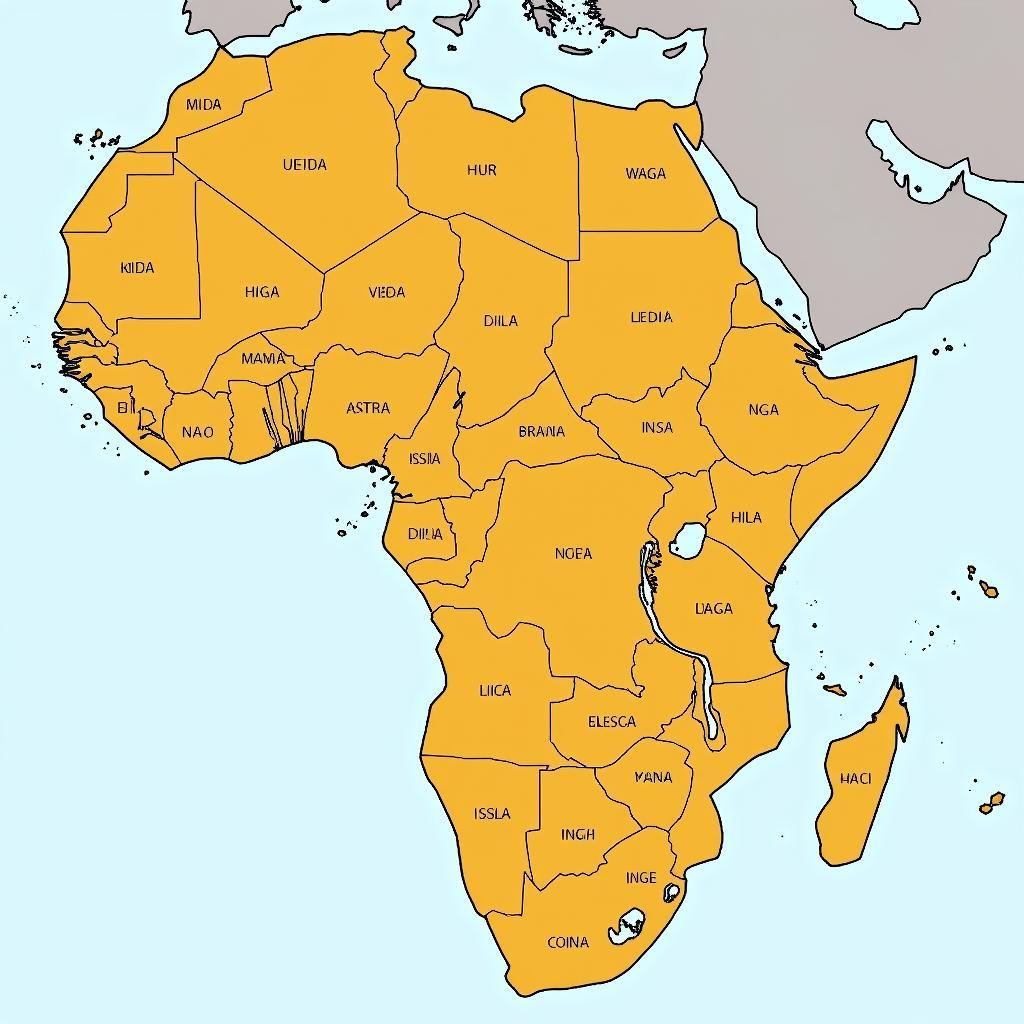Understanding African Identity Politics
African Identity Politics is a complex and multifaceted subject encompassing the interplay of ethnicity, nationality, race, culture, and religion in shaping individual and collective identities across the African continent. This exploration delves into the historical, social, and political forces that have contributed to the formation and evolution of African identities, examining how these identities influence political discourse and action. After the Berlin Conference carved up Africa amongst European powers, the fight for independence became intertwined with defining a unified national identity. This often meant suppressing ethnic differences for the “greater good” of the nation.
The struggle for independence played a crucial role in shaping African identity politics. Pan-Africanism, a movement advocating for the unity and solidarity of all people of African descent, emerged as a powerful force in the fight against colonialism. This movement promoted a shared African identity based on a common history of oppression and a desire for self-determination. You can learn more about the Pan-African meaning through this resource.
The Role of Ethnicity in African Identity Politics
Ethnicity has often been a significant factor in African identity politics. While ethnicity can be a source of cultural pride and community, it has also been manipulated for political gain, leading to ethnic tensions and conflicts. Understanding the historical context of ethnic relations is crucial to navigating the complexities of identity politics in Africa. Post-colonial nation-building often involved consolidating power around certain ethnic groups, marginalizing others and creating lasting inequalities.
 Ethnic Diversity and Identity in Africa
Ethnic Diversity and Identity in Africa
Many African nations are composed of diverse ethnic groups, each with its own unique language, customs, and traditions. This diversity can be a source of strength, but it can also lead to challenges when it comes to national unity and political representation. For example, in some countries, political parties are often formed along ethnic lines, which can exacerbate tensions and make it difficult to address national issues.
The Impact of Colonialism on African Identity
Colonialism had a profound and lasting impact on African identity politics. By imposing arbitrary borders and administrative systems, colonial powers disrupted existing social structures and created new forms of social stratification. The legacy of colonialism continues to shape identity politics in many African countries, influencing political alliances, economic disparities, and social inequalities. Understanding this legacy is essential for analyzing contemporary political dynamics in Africa. Check out this resource on African countries, capitals and currencies.
 The Impact of Colonialism on African Identity
The Impact of Colonialism on African Identity
The imposition of European languages and cultural values also contributed to the erosion of indigenous identities. This process of cultural assimilation often led to a sense of alienation and dispossession among African populations. However, it also spurred movements of cultural revival and resistance, as Africans sought to reclaim their heritage and assert their own cultural identities.
Navigating National and Pan-African Identities
The tension between national and pan-African identities is another key aspect of African identity politics. While national identity is often based on the shared history and culture of a particular nation-state, pan-Africanism emphasizes the common heritage and shared destiny of all people of African descent. This duality can create complex dilemmas for individuals and communities as they navigate their sense of belonging and allegiance. For further information regarding capitals of African countries, you can access this PDF document: African Continent Countries and Capitals PDF.
One of the key challenges facing African nations is how to balance the need for national unity with the recognition of diverse ethnic and cultural identities. This requires building inclusive political systems that ensure fair representation for all groups and promoting intercultural dialogue and understanding. It also necessitates addressing historical injustices and inequalities that have arisen from ethnic tensions and conflicts. If you are interested in learning more about African presence in Memorial University, please visit this link.
Conclusion
African identity politics is a dynamic and evolving field of study. Understanding its complexities is crucial for anyone seeking to engage with the continent’s rich history, diverse cultures, and ongoing political transformations. By acknowledging the interplay of ethnicity, nationality, and historical context, we can gain a deeper appreciation for the challenges and opportunities facing African nations as they strive to build inclusive and equitable societies. This understanding of African identity politics is vital for fostering peaceful coexistence and promoting sustainable development across the continent. For those interested in learning about an African country founded by freed slaves, here’s a relevant link.
FAQ
- What is the role of religion in African identity politics?
- How does gender intersect with other aspects of identity in Africa?
- What are some of the key challenges facing African youth in terms of identity formation?
- How can education be used to promote intercultural understanding and tolerance in Africa?
- What are some examples of successful initiatives that have addressed ethnic conflicts in Africa?
- How has globalization impacted African identity politics?
- What is the future of Pan-Africanism in the 21st century?
Other potential questions about African identity politics:
- How does the African diaspora influence identity politics on the continent?
- What are the implications of climate change for African identity and migration patterns?
- How do artistic expressions reflect and shape African identities?
For further exploration, you might be interested in articles about the impact of social media on African identity formation or the role of traditional leaders in contemporary African politics.
Need assistance? Contact us 24/7: Phone: +255768904061, Email: kaka.mag@gmail.com or visit us at Mbarali DC Mawindi, Kangaga, Tanzania.

